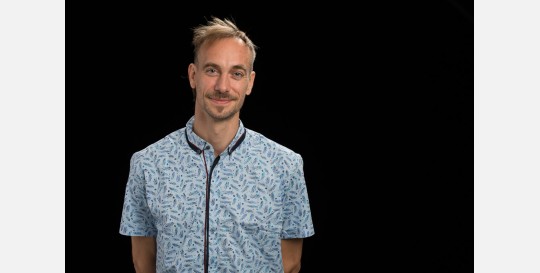Arthur Capet
Natural Environment

- arthur.capet@naturalsciences.be
- 0000-0002-5939-3836
Arthur Capet is a Belgian oceanographer with a PhD from the University of Liège, followed by postdoctoral research at IMEDEA, OGS, UGA, and KUL. He specialized in ecosystem modeling and coastal biogeochemistry, using advanced numerical tools and modern observational platforms. He produced some major works on marine deoxygenation, benthic-pelagic coupling, mesoscale dynamics and environmental impact assessment for offshore anthropogenic activities.
Researchgate LinkedIn ORCID Google Scholar
Function
At RBINS, Arthur is coordinating the development of the biogeochemical module of the 3D COHERENS marine model and active in several project on offshore renewable energy and climate/eutrophication risk assessment. At ULB, Arthur is in charge of further developments on the CGEM estuarine model, dedicated to solve the biogeohemical processes in tidally influenced estuaries. The main objective of its current FedTwin position is to achieve an online coupling of both frameworks embracing the Land-Ocean Continuum.
Research team: Ecosystem Modelling (ECOMOD)
Research theme: Science for a sustainable marine management
Current Project(s)
Take a look at the ECOMOD GitHub page.
Area of Expertise
Marine modelling, Coastal Biogeochemistry, Offshore Renewable
Professional Experience
Arthur Capet began his academic career at the University of Liège, earning a Master in Physics and a PhD in Oceanography within the GHER and MAST groups. He then held postdoctoral positions at several leading European institutes: IMEDEA in Spain, OGS in Italy, Université Grenoble Alpes in France, and KU Leuven in Belgium. These roles allowed him to deepen his expertise in ecosystem modeling and marine biogeochemistry. Across these institutions, he contributed to diverse projects involving 3D coupled models, ocean deoxygenation, benthic-pelagic coupling, and the environmental impacts of offshore activities, laying the groundwork for his current dual appointment.
Publication highlights
Capet, A., Beckers, J.-M., & Grégoire, M. (2013). Drivers, mechanisms and long-term variability of seasonal hypoxia on the Black Sea northwestern shelf--is there any recovery after eutrophication. Biogeosciences , 10(6), 3943–3962.
Capet, A., Mason, E., Rossi, V., Troupin, C., Faugère, Y., Pujol, I., & Pascual, A. (2014). Implications of refined altimetry on estimates of mesoscale activity and eddy-driven offshore transport in the Eastern Boundary Upwelling Systems. Geophysical Research Letters, 41(21), 7602–7610.
Capet, A., Stanev, E. V., Beckers, J.-M., Murray, J. W., & Grégoire, M. (2016). Decline of the Black Sea oxygen inventory. Biogeosciences , 13(4), 1287–1297.
Capet, A., Meysman, F. J. R., Akoumianaki, I., Soetaert, K., & Grégoire, M. (2016). Integrating sediment biogeochemistry into 3D oceanic models: A study of benthic-pelagic coupling in the Black Sea. Ocean Modelling, 101, 83–100.
Capet, A., Fernández, V., She, J., Dabrowski, T., Umgiesser, G., Staneva, J., Mészáros, L., Campuzano, F., Ursella, L., Nolan, G., & El Serafy, G. (2020). Operational Modeling Capacity in European Seas—An EuroGOOS Perspective and Recommendations for Improvement. Frontiers in Marine Science, 7, 129.